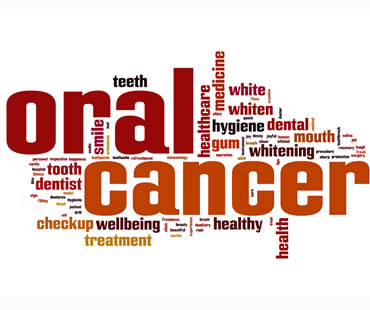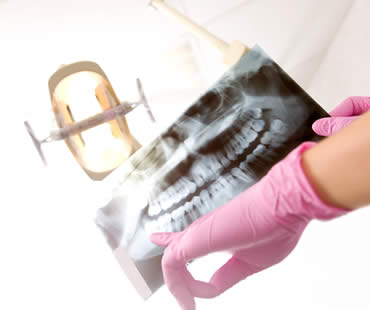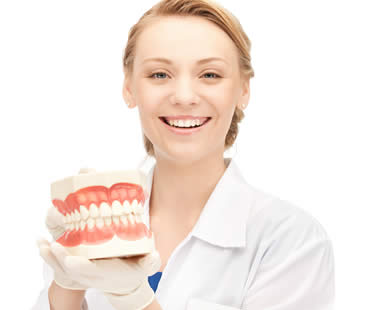
by Dr. Adkins | Nov 9, 2018 | Blog, Dental Information, Dental Topics 2
Most people have friends or family who have had to deal with the disease cancer in some area of the body. Cancer can be described as uncontrollable cell growth that invades and damages surrounding tissue. Oral cancer often shows up as a persistent sore or growth in the mouth, but also includes cancers of the tongue, lips, cheeks, palate, throat, and sinuses. Like most cancers, it can be life threatening without early detection and treatment.
Symptoms
Common symptoms of oral cancer include:
- Swelling, lumps, or rough spots on your lips, gums, or other mouth areas
- White or red patches in your mouth
- Numbness or tenderness in your mouth, neck, or face
- Unexplained bleeding in your mouth
- Sore throat or feeling that something is stuck in your throat
- Persistent sores in the mouth, neck or face that bleed easily and do not heal in two weeks
- Hoarseness or chronic sore throat
- Difficulty swallowing, chewing, talking, or moving your jaw or tongue
- Earache
- Substantial weight loss
Risk factors
Men are at twice as high risk for oral cancer than women, and men over 50 are at greatest risk. The biggest risk factors include any kind of smoking or using smokeless tobacco, excessive alcohol consumption, excessive sun exposure, or family history of cancer. However, it’s important to know that more than 25 percent of oral cancers occur in people who do not smoke or only drink alcohol occasionally.
Diagnosis
Routine dental checkups include an examination for signs of oral cancer. A biopsy may be performed on any suspicious areas. Regular checkups are important so that tests can identify oral cancer early, before it can spread or progress.
Treatment
Oral cancer is often treated similarly to other types of cancers. It may include surgery to remove the growth, followed by radiation or chemotherapy to destroy remaining cancer cells.
We treat patients from McDonough and the surrounding area

by Dr. Adkins | Nov 2, 2018 | Blog, Dental Topics 2, Dentures
If you’ve been wearing dentures for a while, you may have some complaints. They might fit poorly and shift or click when you talk or eat. Poor fit can lead to discomfort and sores in the mouth that worsen over time, or they can collect food underneath them, leading to bad breath.
If this sounds familiar to you, there might be alternatives for you. One of the newest developments in dentures is the pairing of standard dentures with dental implants. The dental implants are placed directly into your jawbone, providing the kind of stability only previously offered by natural teeth. Dentures fixed in the mouth with dental implants become something new: hybrid dentures.
Dentures that utilize dental implants as their anchors are very stable. They enable denture wearers to enjoy foods previously denied them, such as crisp, healthy foods or chewy cuts of meat. Eliminating the food restrictions present for many denture wearers allows them to eat a wider variety of foods, helping to reduce the risk of poor nutrition and the poor health associated with it, including digestion difficulties.
Because of this increased stability, the denture itself can be made smaller. A standard denture covers the roof of the mouth completely, inhibiting the taste and texture of foods. A denture designed around dental implants, however, has an open roof and facilitates a greater enjoyment of foods of all kinds, as well as a more natural feel for your tongue.
Dental implants also stimulate bone by mimicking natural tooth roots. This stimulation allows the bone to continue to be strong and alive, whereas the bones of the face can begin to shrink once a tooth has been extracted. This bone shrinkage leads directly to poor denture fit. Dental implants used with dentures avoid this issue.
If you are a denture wearer and you’d like to see some changes in how your dentures fit, talk to your dentist to see how using dental implants can improve your denture experience.
We look forward to seeing you in our McDonough dental office

by Dr. Adkins | Oct 26, 2018 | Blog, Dental Topics 2, Oral Surgery
Oral surgery to correct problems with the jaw is known as orthognathic surgery. Jaw issues can result from birth defects, changes due to growth, or injury or trauma to the face. While orthodontics can correct bite problems when only the teeth are involved, oral surgery may be required when repositioning of the jaw is necessary to correct the issue. If you suffer from any of the following concerns, orthognathic surgery may be a consideration:
- Difficulty chewing, biting or swallowing
- Problems with opening and closing your mouth, or with speaking
- Persistent jaw or temporomandibular joint pain
- Clenching or grinding of teeth causing excessive wear to the teeth
- Inability to make the lips meet without straining
- Un-proportional facial appearance or protruding jaw
- Malocclusion, open, or incorrect bite
- Recessive lower jaw and chin
- Sleep apnea and breathing problems
Most jaw surgeries are performed completely in the mouth, so no facial scars are visible. The oral surgeon makes cuts in the jawbone and then moves them to the correct position. Once the jaw is correctly aligned, screws and bone plates are placed to secure the jaw into the new position. Sometimes it may be necessary to add extra bone to the jaw from your hip, leg, or rib.
Orthognathic surgery is performed by an oral and maxillofacial surgeon usually in a hospital setting. Recovery time from jaw surgery takes three to six weeks. Your general or family dentist should be able to refer you to a skilled oral surgeon for a consultation and examination to determine a treatment plan. Jaw surgery can improve not only your facial appearance, but also chewing, speaking and breathing functions.
Our dental office is located in McDonough

by Dr. Adkins | Oct 19, 2018 | Blog, Dental Topics 2, Teeth Whitening
If you have to think twice about smiling because you’re embarrassed about your yellowed teeth, then it’s time to do something about it. You might consider having your teeth professionally whitened for quick and effective results, but first you may want to try whitening your smile at home with these natural methods.
Hydrogen peroxide:
Most teeth whitening products you find on store shelves contain hydrogen peroxide. The liquid creates bubbles on your tooth enamel that helps remove stains. The higher the concentration of peroxide and the longer you leave it on, the whiter your teeth will become. However, be careful because too much contact can lead to tooth sensitivity. Some people enhance the whitening properties of hydrogen peroxide by mixing it with baking soda to form a paste to put on the teeth.
Strawberries:
Regularly using strawberries on your teeth can whiten them. Just cut them in half and rub them on your teeth, allowing the juice to penetrate. After a while of using this technique, you should notice your teeth becoming brighter.
Lemon or orange peels:
Rubbing the peels of lemons or oranges against your teeth and leaving the residue on for a few minutes can whiten your smile. Be sure to rinse your mouth afterwards. Don’t leave the peel extracts on your teeth for too long because the acidic content may eventually harm your tooth enamel.
Apple cider vinegar:
Stubborn stains like those from coffee or smoking can be especially hard to eliminate. Rubbing apple cider vinegar on your teeth is one way to combat persistent stains. Apply it for no more than ten minutes and then rinse your mouth, because you don’t want to damage your tooth enamel. It take one to two months of consistent daily use to achieve a whiter smile.
Brush immediately:
The most well-known way to maintain a white smile is to brush your teeth after every meal, as well as after drinking a dark colored beverage. This helps get rid of stains and prevent new ones from forming.
Our dental office is located in McDonough

by Dr. Adkins | Oct 12, 2018 | Blog, Dental Topics 2, Root Canal Treatment
Tooth decay that is allowed to become severe can cause extensive damage to your tooth, even resulting in tooth loss if not treated. Sometimes symptoms are present that cause you to visit your dentist, but other times it’s just a regular checkup that catches a problem.
The source of trouble usually begins with a small area of tooth decay that goes unnoticed. Bacteria attacks, decay thrives, a cavity may form, and infection can spread. Cavities may be filled to repair the tooth and eradicate infection, but advanced cases of decay can reach the tooth’s interior. Once it gets to the pulp, serious damage can set in. This is when symptoms often appear, sometimes becoming severe.
Once damage reaches your tooth’s pulp, some common symptoms that will prompt you to call your dentist may include:
- Slight to severe pain when biting, chewing, or even putting slight pressure on the tooth
- Minor to extreme sensitivity when your tooth comes into contact with anything hot or cold
- Inflammation or swelling near the gum line surrounding the affected tooth
- Ongoing aches in the general area of the damaged tooth, including headaches, neck aches, or earaches
- Ulcers or bumps near the damaged tooth
- Difficulty performing normal mouth functions like eating
If you experience any of these symptoms, it’s time to visit your dentist for an evaluation. Root canal therapy might be recommended to restore your tooth’s health and regain comfort and functionality. Root canal treatment involves cleaning the damaged areas of the tooth pulp to remove infection and bacteria, filling the open space, and sealing it to prevent future damage. Sometimes a crown is placed on top to complete the process.
When a tooth is severely damaged, root canal therapy provides your best chance for restoration and optimum oral health. Your dentist will effectively and safely perform the procedure, and at the same time relieve the related symptoms that you may be experiencing.
We treat patients from McDonough and the surrounding area

by Dr. Adkins | Oct 5, 2018 | Blog, Dental Topics 2, Dentures
If your teeth are badly damaged from decay or facial trauma, or if you have several missing teeth, your dentist may recommend removable prosthodontics to solve your dental problems. Periodontitis (advanced gum disease), bone loss or serious tooth decay can leave you as a poor candidate for restorative options such as dental crowns, dental bridges or dental implants. Removable prosthodontics can restore your smile so that it looks and functions as it should and can restore your confidence as you eat, smile and laugh.
Just hearing the word “dentures” might give you pause, reminding you of your older relatives, but achievements in dental restorative therapies enable your dentist to craft a removable prosthodontic for you that will not only look, but will feel like your natural smile.
Removable prosthodontics include:
- Partial dentures correct gaps when only a few of your natural teeth are missing. A partial denture may be the best choice if your remaining teeth aren’t strong enough to support a dental bridge.
- Overdentures provide restorations when one or more of your natural teeth are in place in an arch – typically two teeth for a bottom overdenture and four teeth for an upper overdenture.
- Immediate dentures are put in place following an extraction, allowing the bone and gums to recover following an extraction procedure. They prevent the adjacent teeth from collapsing upon the empty space and affecting your bite.
- Complete dentures are for edentulous patients (patients with no teeth at all) and are designed to replace all of the teeth in one or both arches of your mouth, restoring your smile and your ability to eat and speak clearly.
Because of advancements in materials and techniques, many dentures can be mistaken for natural teeth. Only you – and your prosthodontist – will know your secret. Talk to your prosthodontist today to see what removable prosthodontics can do for you. Don’t wait to begin enjoying your life with your new, healthy smile.
Our dental office is located in McDonough








 (470) 665-5292
(470) 665-5292  E-Mail Us
E-Mail Us 
